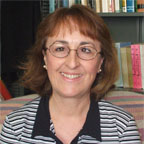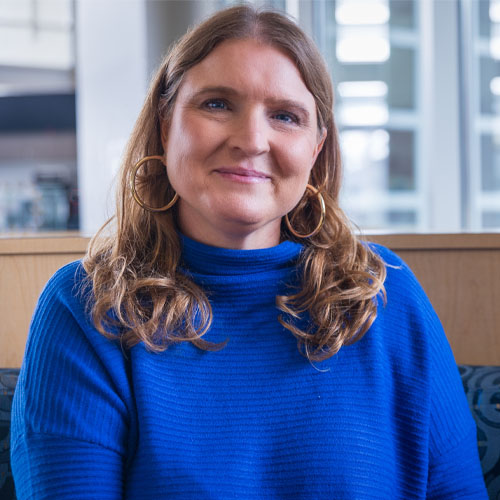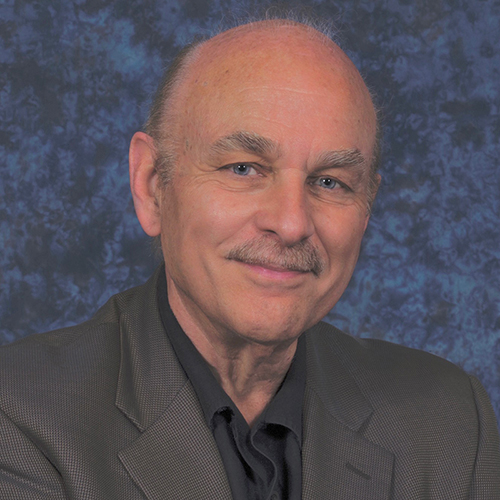
Sociology Annual Lecture Series
''My Sociology Journey'' Celebrating a Lifetime of Sociological Achievements
Monday, October 21, 2024
3:30 p.m. - 5 p.m.
Scripps Cottage
Faculty Speakers

Jill has taught at SDSU since 2001. Her research has focused on governmental and corporate policy as it relates to labor and immigration issues.
Norma has taught at SDSU since 1999. Her research has focused on the family, populations and reproductive health of Mexican women and Latinas along the U.S.-Mexico border area.
Past Lectures
Sociology in the Public Discourse: Navigating Troubled Times
Wednesday, November 8, 2023
3-5 p.m.
Conrad Prebys Aztec Student Union Theatre
Reception to Follow
Join us as we explore how sociological terms and framing have become part of the common vernacular during our "unprecedented times." More importantly we will discuss how this knowledge can help sociologists and others navigate a world where previous ways of educating, making political decisions, even negotiating family relations, have become embroiled in a national and international context without historical guidelines.
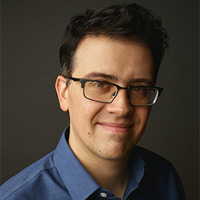
Michel Estefan, Ph.D.
UCSD

Rafael Hernández, Ph.D.
CSU San Marcos
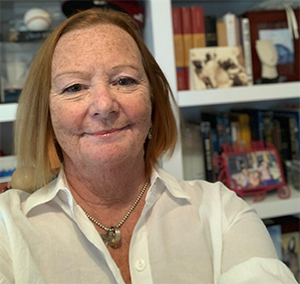
Norah P. Shultz, Ph.D.
SDSU
Loss in the City: Anti-Blackness and Racial Capitalism in the Nation’s Capital
A talk by Tanya Golash-Boza, Ph.D.
Thursday, October 13, 2022
2-4 p.m.
Conrad Prebys Aztec Student Union Theatre and Zoom
In the late 1950s, thousands of African Americans achieved the American Dream of homeownership
in Washington, DC. They purchased two-story brick rowhouses in neighborhoods like
Petworth and Mount Pleasant – made available as White people were leaving the city
for the newly-built suburbs. The remarkable rise in homeownership among Black families
in DC in the 1950s and 1960s, however, would not translate into Black middle-class
stability or wealth. Professor Golash-Boza explains that this is because multiple
structural forces worked together to create barriers for these families. These forces
include the creation of segregated neighborhoods, the rise in Black unemployment,
disinvestment in public schools, the war on drugs, and, more recently, gentrification.
About Tanya
Dr. Tanya Golash-Boza is the founder of the Racism, Capitalism, and the Law (RCL) Lab and a professor of sociology at the University of California, Merced. Golash-Boza has spent her scholarly career working to understand why racial and economic disparities exist, how racism intersects with capitalism, and how our legal system upholds these inequities. She has used this knowledge to tell stories of people and of systems to help colleagues, students, readers, and listeners understand how racism and capitalism structure our lives and what we need to do to change this country and the world.
Watch
“How to Kill a Neighborhood and Make a Profit”
TEDX talk on gentrification in DC
Read
Golash-Boza, Tanya, Hyunsu Oh, Carmen Salazar 2022. “Broken Windows and Order-Maintenance Policing in Gentrifying Washington, DC.” Policing and Society.
Ceciliano-Navarro, Yajaira* and Tanya Golash-Boza. 2021. “Trauma Makes You Grow up Quicker”: The Financial and Emotional Burdens on Family Members of Deportation and Incarceration,” Daedalus 150 (2): 165-179. (Spring), Special Issue on “Immigration, Nativism, and Race in the United States,” edited by Douglas S. Massey.
Golash-Boza, Tanya. 2016. “Parallels Between Mass Incarceration and Mass Deportation: An Intersectional Analysis” Journal of World-Systems Research 22: 2: 484-509.
* Also available in Spanish in emisferica (2019) 14:1
Reflections of an Accidental Sociologist
A talk by Rubén G. Rumbaut
Wednesday, October 27, 2021
2-4 p.m.
Via Zoom
The Department of Sociology invites you to the inaugural lecture series event with
Rubén G. Rumbaut, Ph.D., distinguished professor of sociology, University of California,
Irvine. Sociology scholarship recipients will be presented as well.
About Rumbaut
Rumbaut first came to San Diego as a student in the summer of 1968, to participate in a regional project directed by an SDSU sociologist — which proved a turning point — and returned as an SDSU graduate student from 1969-71.
In San Diego he carried out studies of the police in the 1970s (which formed the basis of his doctoral dissertation), and of Southeast Asian refugees in the 1980s, during years of a “new immigration” which saw an extraordinary demographic transformation of California.
Since 1991 he has directed the landmark Children of Immigrants Longitudinal Study
(CILS), originally based in the SDSU Department of Sociology, which has followed the
trajectories of a multiethnic representative sample from mid adolescence to middle
adulthood, and which will form the focus of the second half of this inaugural talk.
Watch
“Interview with Rubén Rumbaut, sociology professor”
UCI, School of Social Sciences
“AERA 2017: WAllace Foundation Distinguished Lecture: Rubén Rumbaut”
American Educational Research Association
Read and Listen
“Snapshots of a Researcher’s Life: Rubén G. Rumbaut”
Inter-Univesrity Consortium for Political and Social Research (ICPSR)
Read
Feliciano, Cynthia and Rubén G. Rumbaut. 2020. “Coming of Age before the Great Expulsion: The Story of the CILS-San Diego Sample 25 Years Later” Ethnic and Racial Studies 43(1): 199-217.
The event is cosponsored with the Department of Chicano and Chicana Studies and Department
of Political Science.
